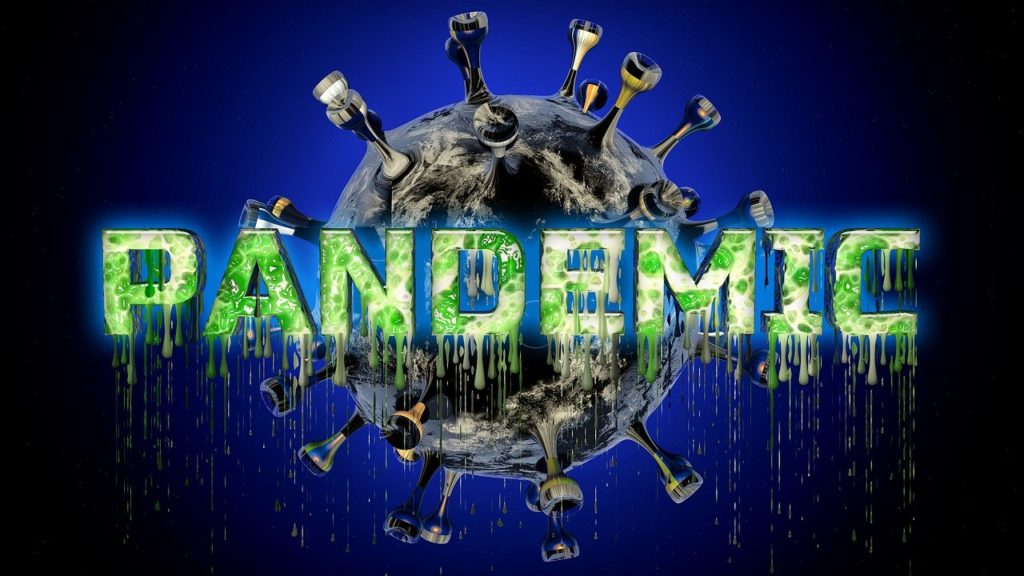By Stan Key, President

The dictionary defines the word “unprecedented” as something never experienced before; singular, unique, abnormal, freakish. While we may debate which events legitimately merit this adjective, one thing is certain: during the past four weeks, the usage of the word “unprecedented” is unprecedented! While many elements of the current crisis certainly seem to be unique, at least in our lifetime, I humbly want to recognize that this is not the first crisis to hit Planet Earth—nor will it be the last. It is helpful to remember that people in previous generations have known “unprecedented” times of upheaval, adversity, and suffering. Whether floods, famines, plagues, earthquakes, locusts, wars, or volcanic eruptions, others have faced crises similar (or worse!) to that which confronts us today.
For example, Psalm 46 recounts a crisis the psalmist faced 3,000 years ago. The earth was giving way, waters were foaming, mountains were trembling, nations were raging, and kingdoms were tottering. He must have felt that his situation was unprecedented. The way he faced his crisis can help us face ours. Rather than looking to human resources (government, medicine, economic aid, etc.) for hope and comfort, the psalmist looked to God. His words accentuate three great affirmations of faith about the God he worshiped:
- God is responsible. “Come, behold the works of the Lord, how he has brought desolations on the earth” (v 8). There may be an important theological distinction between saying the Lord caused the crisis or simply permitted it to happen, but when mountains are trembling and kingdoms are tottering, such distinctions make little practical difference. The psalmist may not be blaming God for what happened, but he is certainly holding him responsible. Many preachers and theologians today are going to great lengths to protect God’s reputation in the current crisis, as if he were the malevolent cause. While we can appreciate such efforts, I, for one, want to simply join the psalmist and say: “O sovereign Lord, you are responsible for this crisis and so I’ll address my issues with you!”
- God can be trusted. “God is our refuge and strength, a very present help in trouble. Therefore, we will not fear” (v 1). When it seemed all hell was breaking loose, the psalmist chose to trust in the protective power of his sovereign Lord and Savior. It is no accident that this was the psalm that inspired Martin Luther to write his great Reformation hymn “A Mighty Fortress.” When it seemed everything was falling apart and the world was about to be consumed by a raging flood of heresy, hatred, and rage, Luther wrote these words:
A mighty fortress is our God, a bulwark never failing;
Our helper He, amid the flood of mortal ills prevailing;
For still our ancient foe, doth seek to work us woe,
His craft and pow’r are great, and, armed with cruel hate,
On earth is not his equal.
Some trust in government, some in medicine, some in Wall Street; but our trust is in the name of the Lord!
- God can be known. The psalmist found peace in the storm not because of his strategic planning or even because of his religion. His ability to endure the tempest was not the result of knowing about God. No, he knew God, and that made all the difference. “Be still, and know that I am God” (v 10). Though many see these words as an invitation to tranquility and contemplative serenity, a better way to understand them is as an authoritative command. Jesus used such language when he calmed the raging sea: “Be still!” (Mk 4:39). The idea was, “Put a lid on it!” When he spoke to a noisy demon who possessed a man in Capernaum, he said, “Be silent!” (Lk 4:35). “Oh, shut up!” For many today, the peace that comes from knowing God will only come when we hear the Lord’s command to cool our jets and chill; remember who you worship!
And though this world, with devils filled, should threaten to undo us;
We will not fear, for God hath willed His truth to triumph through us.
The Prince of Darkness grim, we tremble not for him,
His rage we can endure, for lo, his doom is sure;
One little word shall fell him.
That word above all earthly pow’rs, no thanks to them, abideth.
The Spirit and the gifts are ours through Him Who with us sideth.
Let God’s and kindred go, this mortal life also,
The body they may kill: God’s truth abideth still;
His kingdom is forever!
